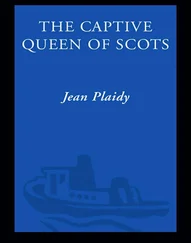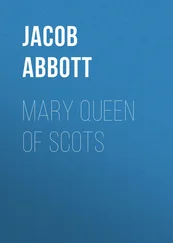Henry Bell - Life of Mary Queen of Scots, Volume 2 (of 2)
Здесь есть возможность читать онлайн «Henry Bell - Life of Mary Queen of Scots, Volume 2 (of 2)» — ознакомительный отрывок электронной книги совершенно бесплатно, а после прочтения отрывка купить полную версию. В некоторых случаях можно слушать аудио, скачать через торрент в формате fb2 и присутствует краткое содержание. Жанр: foreign_antique, foreign_prose, на английском языке. Описание произведения, (предисловие) а так же отзывы посетителей доступны на портале библиотеки ЛибКат.
- Название:Life of Mary Queen of Scots, Volume 2 (of 2)
- Автор:
- Жанр:
- Год:неизвестен
- ISBN:нет данных
- Рейтинг книги:5 / 5. Голосов: 1
-
Избранное:Добавить в избранное
- Отзывы:
-
Ваша оценка:
- 100
- 1
- 2
- 3
- 4
- 5
Life of Mary Queen of Scots, Volume 2 (of 2): краткое содержание, описание и аннотация
Предлагаем к чтению аннотацию, описание, краткое содержание или предисловие (зависит от того, что написал сам автор книги «Life of Mary Queen of Scots, Volume 2 (of 2)»). Если вы не нашли необходимую информацию о книге — напишите в комментариях, мы постараемся отыскать её.
Life of Mary Queen of Scots, Volume 2 (of 2) — читать онлайн ознакомительный отрывок
Ниже представлен текст книги, разбитый по страницам. Система сохранения места последней прочитанной страницы, позволяет с удобством читать онлайн бесплатно книгу «Life of Mary Queen of Scots, Volume 2 (of 2)», без необходимости каждый раз заново искать на чём Вы остановились. Поставьте закладку, и сможете в любой момент перейти на страницу, на которой закончили чтение.
Интервал:
Закладка:
There were others, as has been said, whom Bothwell either won over to assist him, or persuaded to remain quiet. One of his inferior accomplices afterwards declared, that the Earl showed him a bond, to which were affixed the signatures of Huntly, Argyle, Maitland, and Sir James Balfour, and that the words of the bond were to this effect: – “That for as much as it was thought expedient and most profitable for the commonwealth, by the whole nobility and Lords undersubscribed, that such a young fool and proud tyrant should not reign, nor bear rule over them, for diverse causes, therefore, these all had concluded, that he should be put off by one way or other, and who-soever should take the deed in hand, or do it, they should defend and fortify it as themselves, for it should be every one of their own, reckoned and holden done by themselves.” 29 29 Ormiston’s Confession in Laing, vol. ii. p. 322.
To another of his accomplices, Bothwell declared that Argyle, Huntly, Morton, Maitland, Ruthven, and Lindsay, had promised to support him; and when he was asked what part the Earl of Murray would take, his answer was, – “He does not wish to intermeddle with it; he does not mean either to aid or hinder us.” 30 30 Paris’s Confession in Laing, vol. ii. p. 298-9.
But whoever his assistants were, it was Bothwell’s own lawless ambition that suggested the whole plan of proceeding, and whose daring hand was to strike the final and decisive blow. Everything was now arranged. His retainers were collected round him; – four or five of the most powerful ministers of the crown knew of his design, and did not disapprove of it; – the nobles then at court were disposed to befriend him, from motives either of political interest or personal apprehension; – Darnley and the Queen were unsuspicious and unprotected. A kingly crown glittered almost within his grasp; he had only to venture across the Rubicon of guilt, to place it on his brow.
CHAPTER III.
THE DEATH OF DARNLEY
It was on Sunday, the 9th of February 1567, that the final preparations for the murder of Darnley were made. To execute the guilty deed, Bothwell was obliged to avail himself of the assistance of those ready ministers of crime, who are always to be found at the beck of a wealthy and depraved patron. There were eight unfortunate men whom he thus used as tools with which to work his purpose. Four of these were merely menial servants; – their names were, Dalgleish, Wilson, Powrie, and Nicolas Haubert, more commonly known by the sobriquet of French Paris. He was a native of France, and had been a long while in the service of the Earl of Bothwell; but on his master’s recommendation, who foresaw the advantages he might reap from the change, he was taken into the Queen’s service shortly before her husband’s death. Bothwell was thus able to obtain the keys of some of the doors of the Kirk-of-Field house, of which he caused counterfeit impressions to be taken. 31 31 Paris’s Deposition in Laing, vol. ii. p. 296.
The other four who were at the “deed-doing,” were persons of somewhat more consequence. They were small landed proprietors or lairds , who had squandered their patrimony in idleness and dissipation, and were willing to run the chance of retrieving their ruined fortunes at any risk. They were the Laird of Ormiston, Hob Ormiston his uncle, “or father’s brother,” as he is called, John Hepburn of Bolton, and John Hay of Tallo. Bothwell wished Maitland, Morton, and one or two others, to send some of their servants also to assist in the enterprise; but if they ever promised to do so, it does not appear that they kept their word. Archibald Douglas, however, who had linked himself to the fortunes of Bothwell, was in the immediate neighbourhood with two servants, when the crime was perpetrated. 32 32 Laing, vol. ii. p. 282 and 370.
Till within two days of the murder, Bothwell had not made up his mind how the King was to be killed. He held various secret meetings with his four principal accomplices, at which the plan first proposed was to attack Darnley when walking in the gardens adjoining the Kirk-of-Field, which his returning health enabled him to visit occasionally when the weather was favourable. But the success of this scheme was uncertain, and there was every probability that the assassins would be discovered. 33 33 Deposition of Hepburn – Anderson, vol. ii. p. 183.
It was next suggested that the house might easily be entered at midnight, and the King stabbed in bed. But a servant commonly lay in the same apartment with him, and there were always one or two in the adjoining room, who might have resisted or escaped, and afterwards have been able to identify the criminals. After much deliberation, it at length occurred that gunpowder might be used with effect; and that, if the whole premises were blown up, they were likely to bury in their ruins every thing that could fix the suspicion on the parties concerned. Powder was therefore secretly brought into Edinburgh from the Castle of Dunbar, of which Bothwell had the lordship, and was carried to his own lodgings in the immediate vicinity of Holyrood Palace. 34 34 Anderson, vol. ii. p. 183.
It then became necessary to ascertain on what night the house could be blown up, without endangering the safety of the Queen, whom Bothwell had no desire should share the fate of her husband. She frequently slept at the Kirk-of-Field; and it was difficult to ascertain precisely when she would pass the night at Holyrood. 35 35 Keith, Preface, p. viii.
In his confession, Hay mentions, that “the purpose should have been put in execution upon the Saturday night; but the matter failed, because all things were not in readiness.” It is not in the least unlikely that this delay was owing to Mary’s remaining with her husband that evening.
On Sunday, Bothwell learned that the Queen intended honouring with her presence a masque which was to be given in the Palace, at a late hour, on the occasion of the marriage of her French servant Sebastian, to Margaret Carwood, one of her waiting-maids. He knew therefore that she could not sleep at the Kirk-of-Field that night, and took his measures accordingly. At dusk he assembled his accomplices, and told them that the time was come when he should have occasion for their services. 36 36 Anderson, vol. ii. p. 179.
He was himself to sup between seven and eight at a banquet given to the Queen by the Bishop of Argyle, but he desired them to be in readiness as soon as the company should break up, when he promised to join them. 37 37 Ibid. vol. ii. p. 184.
The Queen dined at Holyrood, and went from thence to the house of Mr John Balfour, where the Bishop lodged. She rose from the supper-table about nine o’clock, and, accompanied by the Earls of Argyle, Huntly, and Cassils, she went to visit her husband at the Kirk-of-Field. Bothwell, on the contrary, having called Paris aside, who was in waiting on the Queen, took him with him to the lodgings of the Laird of Ormiston. 38 38 Laing, Appendix, p. 304.
There he met Hay and Hepburn, and they passed down the Blackfriars Wynd together. The wall which surrounded the gardens of the Dominican monastery ran near the foot of this wynd. They passed through a gate in the wall, which Bothwell had contrived to open by stealth, and, crossing the gardens, came to another wall immediately behind Darnley’s house. 39 39 Deposition of John Hay in Anderson, vol. ii. p. 177.
Dalgleish and Wilson had, in the meantime, been employed in bringing up, from Bothwell’s residence in the Abbey, the gunpowder he had lodged there. It had been divided into bags, and the bags were put into trunks, which they carried upon horses. Not being able to take it all at once, they were obliged to go twice between the Kirk-of-Field and the Palace. They were not allowed to come nearer than the Convent-gate at the foot of Blackfriars Wynd, where the powder was taken from them by Ormiston, Hepburn, and Hay, who carried it up to the house. When they had conveyed the whole, they were ordered to return home; and as they passed up the Blackfriars’ Wynd, Powrie, as if suddenly conscience-struck, said to Wilson, “Jesu! whatna a gait is this we are ganging? I trow it be not good.” 40 40 Deposition of William Powrie, in Anderson, vol. ii. p. 165.
Neither of these menials had seen Bothwell, for he kept at a distance, walking up and down the Cowgate, until the others received and deposited the powder. A large empty barrel had been concealed, by his orders, in the Convent gardens, and into it they intended to have put all the bags; and the barrel was then to have been carried in at the lower back door of Darnley’s house, and placed in the Queen’s bedroom, which, it will be remembered, was immediately under that of the King. Paris, as the Queen’s valet-de-chambre, kept the keys of the lower flat, and was now in Mary’s apartment ready to receive the powder. But some delay occurred in consequence of the barrel turning out to be so large that it could not be taken in by the back door; and it became necessary therefore to carry the bags one by one into the bedroom, where they emptied them in a heap on the floor. Bothwell, who was walking anxiously to and fro, was alarmed at this delay, and came to inquire if all was ready. He was afraid that the company up stairs, among whom was the Queen, with several of her nobility and ladies in waiting, might come suddenly out upon them, and discover their proceedings. “ He bade them haste ,” says Hepburn, “ before the Queen came forth of the King’s house; for if she came forth before they were ready, they would not find such commodity .” 41 41 Anderson, vol. ii. p. 183.
At length, every thing being put into the state they wished, they all left the under part of the house, with the exception of Hepburn and Hay, who were locked into the room with the gunpowder, and left to keep watch there till the others should return. 42 42 Ibid. vol. ii. p. 181.
Интервал:
Закладка:
Похожие книги на «Life of Mary Queen of Scots, Volume 2 (of 2)»
Представляем Вашему вниманию похожие книги на «Life of Mary Queen of Scots, Volume 2 (of 2)» списком для выбора. Мы отобрали схожую по названию и смыслу литературу в надежде предоставить читателям больше вариантов отыскать новые, интересные, ещё непрочитанные произведения.
Обсуждение, отзывы о книге «Life of Mary Queen of Scots, Volume 2 (of 2)» и просто собственные мнения читателей. Оставьте ваши комментарии, напишите, что Вы думаете о произведении, его смысле или главных героях. Укажите что конкретно понравилось, а что нет, и почему Вы так считаете.












